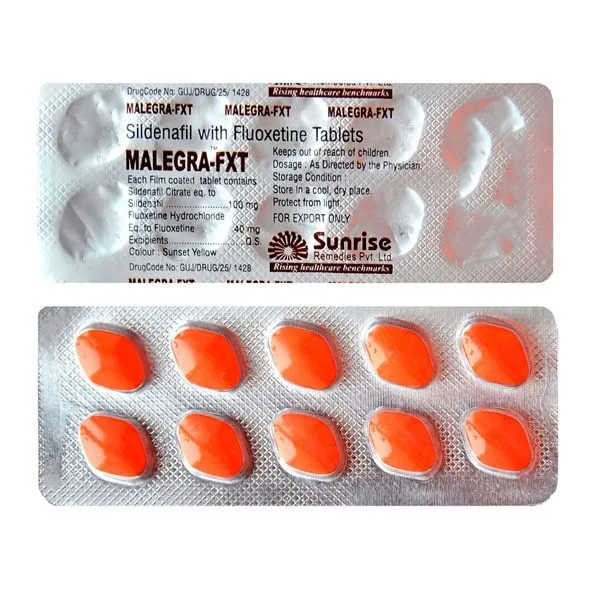How Weight Loss Affects Testosterone & Sexual Health
Are you struggling with low energy, decreased libido, or overall dissatisfaction in the bedroom? The culprit might be hiding in plain sight—your waistline. 🤔 Excess weight doesn’t just affect your appearance; it can significantly impact your hormonal balance and sexual health.
But here’s the good news: Shedding those extra pounds could be the key to unlocking a healthier, more satisfying sex life. 🔑💪 Recent studies have shown a fascinating link between weight loss and improved testosterone levels, leading to enhanced sexual function for both men and women.
In this eye-opening blog post, we’ll dive deep into how weight loss affects testosterone and sexual health. We’ll explore the intricate connection between body weight and hormone production, uncover the surprising benefits of slimming down for your sex life, and reveal lifestyle factors that can supercharge your results. Whether you’re male or female, struggling with sexual issues or simply curious about optimizing your health, this guide will provide valuable insights to help you take control of your hormonal and sexual well-being. Let’s embark on this transformative journey together! 🚀
Understanding the Link Between Weight and Testosterone
The science behind weight and hormone production
The intricate relationship between body weight and hormone production, particularly testosterone, is rooted in complex biological processes. Adipose tissue, commonly known as body fat, plays a crucial role in hormone regulation. Here’s how weight affects hormone production:
- Aromatase enzyme activity: Excess fat increases aromatase enzyme production, which converts testosterone to estrogen.
- Insulin resistance: Higher body fat can lead to insulin resistance, disrupting hormone balance.
- Leptin levels: Obesity alters leptin production, affecting the hypothalamic-pituitary-gonadal axis.
- Inflammation: Excess weight promotes chronic inflammation, potentially interfering with hormone synthesis.
Understanding these mechanisms highlights the importance of maintaining a healthy weight for optimal hormonal balance and sexual health.
How excess body fat impacts testosterone levels
Excess body fat negatively affects testosterone levels in several ways:
- Increased estrogen production: As mentioned earlier, more fat tissue leads to higher aromatase activity, converting testosterone to estrogen.
- Reduced SHBG: Obesity lowers Sex Hormone Binding Globulin (SHBG) levels, decreasing free testosterone in the bloodstream.
- Disrupted sleep patterns: Excess weight often leads to sleep apnea, which can lower testosterone production.
- Altered metabolism: Obesity affects metabolic processes, potentially reducing testosterone synthesis.
The role of muscle mass in testosterone production
Muscle mass plays a vital role in testosterone production and regulation:
- Increased androgen receptors: More muscle tissue means more androgen receptors, enhancing testosterone’s effects.
- Improved insulin sensitivity: Greater muscle mass helps regulate insulin levels, positively impacting hormone balance.
- Enhanced metabolic rate: More muscle increases basal metabolic rate, supporting overall hormonal health.
- Exercise-induced testosterone boost: Building and maintaining muscle through resistance training can stimulate testosterone production.
By understanding these connections, it becomes clear that managing body composition through proper diet and exercise is crucial for maintaining healthy testosterone levels and overall sexual health. Next, we’ll explore how weight loss specifically affects testosterone levels and sexual function.
Effects of Weight Loss on Testosterone Levels
Immediate changes in hormone levels during weight loss
When you embark on a weight loss journey, your body undergoes several hormonal changes. Initially, testosterone levels may slightly decrease as your body adapts to the calorie deficit. This is because fat tissue plays a role in hormone production and regulation. However, this dip is usually temporary and is followed by a gradual increase in testosterone as you continue to lose weight.
Key immediate changes include:
- Reduced estrogen production
- Improved insulin sensitivity
- Decreased cortisol levels
Long-term testosterone benefits of maintaining a healthy weight
Maintaining a healthy weight over time can significantly boost testosterone levels. As you shed excess fat, especially around the midsection, your body becomes more efficient at producing and utilizing testosterone. This leads to a range of benefits, including:
- Increased muscle mass
- Improved energy levels
- Enhanced libido
- Better mood and cognitive function
Optimal weight loss strategies for boosting testosterone
To maximize testosterone production during weight loss, consider these strategies:
- Focus on gradual, sustainable weight loss (1-2 pounds per week)
- Incorporate resistance training to build muscle mass
- Ensure adequate protein intake to support hormone production
- Get sufficient sleep (7-9 hours per night)
- Manage stress through relaxation techniques
By following these approaches, you can optimize your weight loss journey to support healthy testosterone levels and overall sexual health. Remember, consistency is key in achieving long-term hormonal balance through weight management.
Impact of Weight Loss on Male Sexual Health
Improved libido and sexual desire
Weight loss can significantly boost a man’s libido and sexual desire. As excess body fat decreases, testosterone levels typically increase, leading to a renewed interest in sexual activity. This hormonal shift often results in:
- Increased frequency of sexual thoughts
- Greater responsiveness to sexual stimuli
- Enhanced overall sexual satisfaction
Men who lose weight often report feeling more energetic and motivated in their daily lives, which naturally extends to their sexual relationships.
Enhanced erectile function
Shedding excess pounds can have a profound impact on erectile function. Weight loss contributes to improved erectile health through:
- Better blood flow: Reduced body fat enhances circulation, crucial for achieving and maintaining erections
- Increased nitric oxide production: This molecule is essential for blood vessel dilation
- Improved hormonal balance: Higher testosterone levels support erectile function
These factors combine to create firmer, longer-lasting erections and a more satisfying sexual experience for both partners.
Better sperm quality and fertility
Weight loss can lead to significant improvements in male fertility. As men lose excess weight, they often experience:
- Increased sperm count
- Improved sperm motility
- Enhanced sperm morphology (shape and structure)
These improvements in sperm quality can greatly increase the chances of successful conception for couples trying to conceive.
Increased sexual confidence and body image
Losing weight not only affects physical health but also has a profound impact on mental well-being and self-perception. Men who successfully lose weight often experience:
- Improved body image and self-esteem
- Greater confidence in intimate situations
- Reduced anxiety about sexual performance
This boost in confidence can lead to more satisfying sexual encounters and stronger relationships overall. With these improvements in both physical and psychological aspects of sexual health, weight loss can truly transform a man’s sexual well-being.
Weight Loss and Female Sexual Health
Hormonal balance and menstrual regularity
Weight loss can significantly impact hormonal balance in women, leading to improved menstrual regularity. As body fat decreases, the production of estrogen becomes more balanced, often resulting in:
- More predictable menstrual cycles
- Reduced PMS symptoms
- Improved fertility
Women who struggle with conditions like PCOS may find that weight loss helps regulate their hormones, potentially restoring ovulation and menstrual cycles.
Improved vaginal health and lubrication
Shedding excess weight can have a positive effect on vaginal health. As hormonal balance improves, women often experience:
- Increased natural lubrication
- Better pH balance in the vagina
- Reduced risk of vaginal infections
These improvements contribute to more comfortable and enjoyable sexual experiences.
Enhanced arousal and orgasm
Weight loss can lead to enhanced sexual arousal and more satisfying orgasms. This is due to:
- Improved blood flow to the genital area
- Increased sensitivity in erogenous zones
- Better hormonal balance supporting sexual response
Many women report a heightened ability to achieve orgasm and more intense sensations during sexual activity after losing weight.
Increased sexual satisfaction and body confidence
As women lose weight, they often experience a boost in body confidence, which directly impacts their sexual satisfaction. This newfound confidence can lead to:
- Greater willingness to explore and experiment sexually
- Improved communication with partners about desires and needs
- Increased frequency of sexual activity
The combination of physical improvements and enhanced self-esteem contributes to a more fulfilling sex life overall. With these positive changes, women often find themselves more eager to engage in intimate activities and more satisfied with their sexual experiences.
Lifestyle Factors That Complement Weight Loss for Hormonal Health
Nutrition tips for supporting testosterone production
To complement weight loss efforts and boost testosterone production, focus on these key nutritional strategies:
- Increase zinc-rich foods: Oysters, lean beef, pumpkin seeds, and lentils
- Consume healthy fats: Avocados, nuts, olive oil, and fatty fish
- Include vitamin D sources: Egg yolks, fortified milk, and sunlight exposure
- Opt for complex carbohydrates: Whole grains, sweet potatoes, and quinoa
Exercise routines that boost testosterone naturally
Incorporating these exercises into your routine can naturally elevate testosterone levels:
- Compound lifts: Squats, deadlifts, and bench presses
- High-Intensity Interval Training (HIIT)
- Resistance training with heavy weights and low reps
- Sprint workouts
Stress management techniques for hormonal balance
Chronic stress can negatively impact testosterone levels. Try these stress-reduction methods:
- Mindfulness meditation
- Deep breathing exercises
- Regular yoga practice
- Engaging in hobbies or leisure activities
Sleep optimization for better hormone regulation
Quality sleep is crucial for maintaining healthy testosterone levels. Improve your sleep by:
- Establishing a consistent sleep schedule
- Creating a dark, cool sleeping environment
- Limiting screen time before bed
- Avoiding caffeine and alcohol close to bedtime
By incorporating these lifestyle factors alongside weight loss efforts, you can significantly improve your hormonal health and testosterone levels. Next, we’ll explore some potential risks and considerations to keep in mind when embarking on a weight loss journey for hormonal balance.
Potential Risks and Considerations
Dangers of rapid or extreme weight loss on hormonal health
While weight loss can have positive effects on testosterone levels and sexual health, rapid or extreme weight loss can pose significant risks to hormonal balance. Drastic calorie restriction or crash diets can lead to:
- Hormonal imbalances
- Decreased testosterone production
- Reduced libido
- Fatigue and mood swings
- Muscle loss
- Weakened immune system
These effects can counteract the potential benefits of weight loss on sexual health and overall well-being.
When to consult a healthcare professional
It’s crucial to involve a healthcare professional in your weight loss journey, especially if you’re experiencing:
- Persistent sexual health issues
- Significant changes in libido or sexual function
- Symptoms of hormonal imbalance (e.g., fatigue, mood swings, hair loss)
- Difficulty losing weight despite efforts
- Rapid weight loss without intentional changes
A healthcare provider can assess your individual situation and provide personalized guidance to ensure your weight loss approach supports hormonal health.
Balancing weight loss goals with overall health
Achieving a healthy balance between weight loss and overall health is essential for maintaining optimal hormonal function and sexual well-being. Consider the following strategies:
- Aim for gradual, sustainable weight loss (1-2 pounds per week)
- Focus on nutrient-dense, whole foods to support hormonal health
- Incorporate regular exercise, including both cardio and strength training
- Prioritize adequate sleep and stress management
- Stay hydrated and limit alcohol consumption
By adopting a holistic approach to weight management, you can improve your hormonal balance, sexual health, and overall quality of life. Remember, sustainable lifestyle changes are key to long-term success in maintaining a healthy weight and hormonal equilibrium.
Conclusion
Weight loss can have a significant positive impact on testosterone levels and sexual health for both men and women. As excess body fat decreases, testosterone production typically increases, leading to improved libido, energy levels, and overall sexual function. For men, this can result in better erectile function and sperm quality, while women may experience enhanced arousal and satisfaction.
Adopting a healthy lifestyle that includes regular exercise, a balanced diet, and stress management can further amplify the benefits of weight loss on hormonal health and sexual well-being. However, it’s crucial to approach weight loss sensibly and consult with a healthcare professional to ensure a safe and effective journey towards improved sexual health and hormone balance.




















Add comment